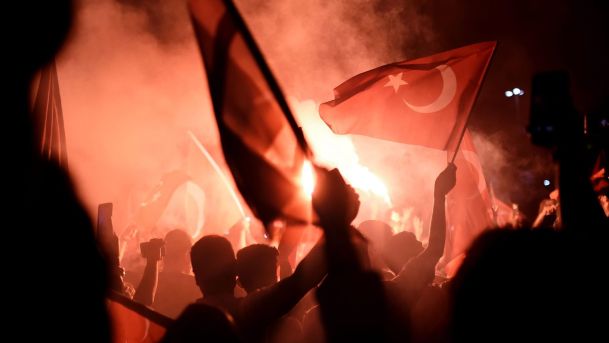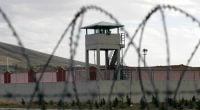The Battle For Turkey’s Soul

Date posted: July 24, 2016
Anwar Alam
The recent attempt of a military coup has raised more questions than it has answered about the emerging complexities of Turkish politics. This development has sent a shock wave among all the international stakeholders in the region as it generated fear of further destabilisation of an already destabilised region.
The narratives about the occurrence of the coup range from a possible involvement of the Erdogan regime itself so as to further consolidate its unfettered rule by controlling the institution of the military on the one hand to the alleged involvement of the Gulen movement, on the other hand. However, between these two poles, the possibility of a revolt by a section of Kemalist military officers can not be ruled out.
However, it is Erdogan’s allegation of direct involvement of Fethullah Gulen and the Gulen movement in the coup that has received worldwide attention. Gulen, a Turkish Islamic scholar living in the US since 1998, is credited to have inspired a worldwide Islamic voluntary movement, called Hizmet (service), which runs thousands of secular educational institutions along with inter-faith dialogue centres. The movement has worked closely with Erdogan’s Justice and Development Party (AKP) rule in pushing the agenda of democratisation of Turkish society and state, which eventually resulted in clipping the powers of the army and jolting the hegemony of the “White Turks” between 2002 and 2012 before the two fell out in 2013 — partly on account of the de-democratisation measures by the Erdogan regime. ‘
The Erdogan regime’s hatred of the Gulen movement is both personal and political. Erdogan is personally convinced that Gulen and the movement have betrayed him by orchestrating the corruption charges involving his family members and inner circle in December 2013. This permanently damaged his political prospect to wear the mantle of Kemal Ataturk. All political regimes in the West Asian and North African region tend to monopolise the political space and fear that autonomous social movements are a threat to them. The Erdogan regime is no different.
The Gulen movement with its powerful network of educational institutions, media and business houses along with its gradual penetration in state sectors, particularly in the police and the judiciary, makes the Erdogan regime fearful of its existence. Moreover, both the AKP and the Gulen movement shared the contemporary Turkish legacy of Islam, development and democracy, at least till 2012. It is not in the interest of any regime to share the legacy upon which rests its legitimacy. This partly explains why the regime sought to crush the movement in the name of “terrorist” with a specific aim of robbing the movement of its “peaceful, non-violent, Islamic and developmental image”. Finally, the conflict between the two emanates from the inherent conflict between the two traditions of Islam: The power-centred political-binary-collectivist narrative of Islam (or Political Islamists) such as the AKP that seeks to control and dominate all aspects of national life and the individualised-Sufistic-ethical-moral-spiritual narrative of Islam, represented by Gulen, that seeks to guide the “political” without directly participating in it.
The 2013 corruption charges provided the first opportunity to the Erdogan regime to finish off the movement. Since then, armed with a massive mandate in 2014, Erdogan sacked and arrested many officials and private persons and systematically took over all Gulen movement-linked institutions. The failed military coup proved to be, in the words of Erdogan himself, “a gift from god” because it will help him (a) win over those who remained unconvinced about regime’s rejection of the corruption charges, (b) eliminate all potentials suspects, dissenting voices and enemies, (c) overcome his growing international isolation, and finally (d) institutionalise himself as the Reis — lifelong serving leader, both of the Turkish nation and the ummah at large.
It is not surprising that within 3-4 days of the failed coup, the regime suspended, arrested and dismissed more than 35,000 officials associated with different government bodies. The coming days would witness more purge of state officials including death penalties. The government may call for snap elections to secure an absolute majority with a view to amending the constitution to make Erdogan the Reis. Within a span of 70 years, the pendulum has swiftly shifted from once Kemalist authoritarianism to Islamist authoritarianism in Turkey, which points out to, among other things, the fragility of the relationship between Islam and democracy.
Turkey has entered a phase of instability for a long time to come albeit under the rule of a very popular regime. It is indeed pitiful and paradoxical that while people’s participation in resisting the military coup was hailed as the “victory of democracy,” the post-coup period is increasingly witnessing the “death of democracy”. It is also ironic and tragic that at a time when the world is in dire need of a liberal-moderate Islamic movement in its fight against Wahhabi-Salafi inspired global Islamic terrorism, the Erdogan regime is bent upon destroying the Gulen movement by labelling it as “terrorist”.
Source: The Indian Express , July 24, 2016
Tags: Fethullah Gulen | India | Military coups in Turkey | Turkey |
























